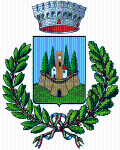Descrizione
La località con questo nome è ricordata per la prima volta in un documento del 1099.
Il castello di Bossi si trova non distante da Brolio, nell’antico feudo della famiglia dei Berardenghi. L’etimologia deriverebbe dal fitonimo “bosso”, in Toscana detto anche “bossolo”, una pianta perenne sempreverde dal legno flessibile e resistente.
Il castello di Bossi vive i suoi momenti più esaltanti durante la battaglia di Monteaperti, trovandosi in zona di confine vicinissima al luogo di battaglia. Nel 1478 fu distrutto e devastato dai Fiorentini, per poi passare di proprietà prima ai Ricasoli e successivamente agli Ugurgieri.
L’aspetto esterno attuale si fa risalire all’epoca granducale, quando l’intero impianto di forma quadrata viene predisposto per essere trasformato in villa, essendo la Toscana del tutto pacificata e riunita. Più tardi, il castello diventerà proprietà dell’ospedale Santa Maria della Scala di Siena e in seguito della famiglia Piccolomini, che lo ha tenuto fin quasi ai giorni nostri, definendone l’aspetto che ancora conserva.
Dell’antica fortificazione che fa da basamento alla villa, di fatto inglobata sul lato interno del grande cortile, è ben visibile un lato a scarpa. All’interno della poderosa mole quadrangolare si accede attraverso due ampi portoni opposti, uniti idealmente da un loggiato restaurato e riportato alla luce da pochi anni. A piano terra troviamo un salone e una caratteristica cucina dove spicca un camino a tutta parete. Da segnalare che nel catasto del 1825 l’unico edificio rappresentato è quello principale, ovvero la villa vera e propria, mentre gli altri fabbricati che attualmente costituiscono il complesso ancora non figurano.
English version:
The first documented mention of a locality with this name is from 1099.
The castle of Bossi is not far from Brolio, in the ancient fief of the Berardenghi family. The etymology probably comes from the plant name “bosso”, also called “bossolo” in Tuscany, a perennial evergreen with sturdy, flexible wood.
The castle of Bossi had its moments of glory during the battle of Monteaperti, as it was in a border zone very close to the fighting. In1478 it was destroyed by the Florentines, and then became the property of the Ricasoli family, and later the Ugurgieri family.
The current exterior appearance dates to the era of the grand duchy, when the entire square layout was arranged to be transformed into a villa, since Tuscany was by then reunited and peaceful. Later, the castle became the property of the hospital of Santa Maria della Scala of Siena, and then of the Piccolomini family, which kept it almost to the present day, defining the appearance it continues to conserve.
One scarped side of the ancient fortification that serves as the base of the villa is clearly visible, incorporated into the interior of the large courtyard. The interior of the impressive quadrangular structure is entered via two large doors on opposite sides, ideally linked by a loggia that was rediscovered and renovated a few years ago. On the ground floor is a salon and a characteristic kitchen with a fireplace taking up one entire wall. In the 1825 land registry, the only building indicated was the main one, i.e. the villa itself, while the other structures that currently make up the complex did not yet appear.
Modalità d'accesso
sempre aperto
Indirizzo
Orario per il pubblico
Punti di contatto
Ultimo aggiornamento: 4 marzo 2024, 11:49

